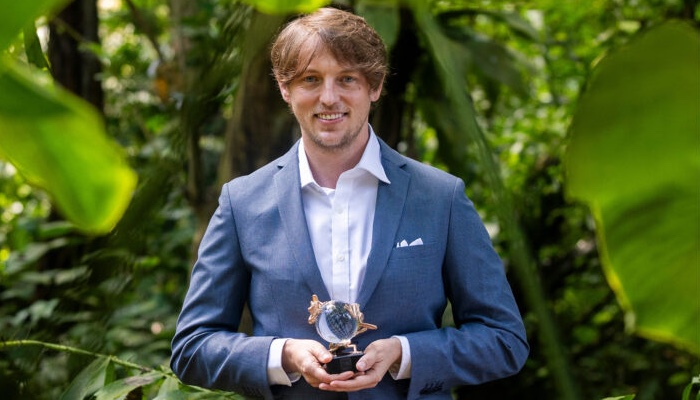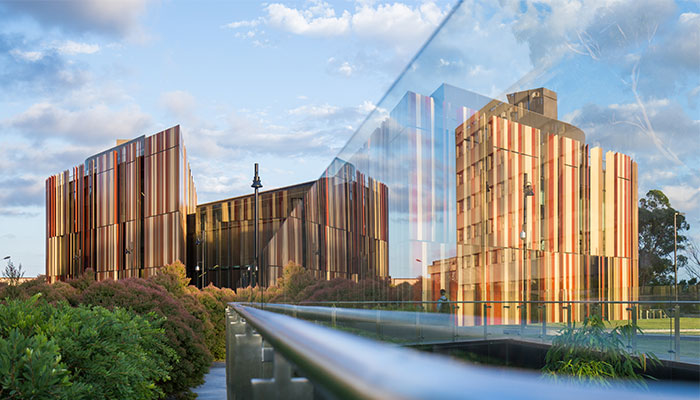The annual prize, run by the University of California, Los Angeles (UCLA), recognises emerging leaders under 40 who are redefining environmental leadership through science, technology and community innovation.
Dr Waddle, from Applied BioSciences in the Faculty of Science and Engineering, was selected from a shortlist of 13 global environmental leaders to compete for the $100,000 top prize, with the two runners-up each receiving $5000.
His research addresses chytridiomycosis, described as ‘the worst disease to affect vertebrate biodiversity’ and a pandemic that has caused global declines in at least 501 amphibian species, including 90 extinctions.

Dr Anthony Waddle, pictured here with his 2025 Future for Nature Award, is in the running for another prestigious gong. Image credit: Future for Nature Foundation.
Dr Waddle’s innovative multi-pronged approach to combating the disease includes developing ‘frog saunas’ – artificial thermal refuges to allow amphibians to naturally clear infections by selecting higher temperatures.
His research also includes vaccines to boost frog resistance before they are released from refuges, and genetic modification techniques aimed at creating disease-resistant amphibian populations.
“Chytrid is the single worst invasive species on the planet. Nothing else has caused this level of destruction,” says Dr Waddle.
“This award would support vital infrastructure and personnel so we can apply the research at an impactful scale. This pandemic is a huge challenge and we need help.”
The Pritzker recognition validates years of work by Dr Waddle and his colleagues in developing solutions ranging from immediate practical interventions to long-term genetic approaches using synthetic biology.
Dr Waddle’s research shows targeted local interventions can prevent extinctions while buying time for resistance to evolve and other solutions to be developed.
Professor Samuel Muller, Executive Dean of the Faculty of Science and Engineering, says Dr Waddle’s recognition demonstrates the global impact of Macquarie’s conservation research.
“Anthony’s innovative approach to saving amphibians from this devastating disease shows how creative science can tackle seemingly impossible conservation challenges,” Professor Muller says. “We are incredibly proud of his work.”
Dr Waddle was also honoured earlier this year with the prestigious 2025 Future for Nature Award at a ceremony in the Netherlands, which recognised three scientists worldwide for their work towards nature conservation. He has also received an Australian Research Council Discovery grant to expand his research.
The winner of the 2025 Pritzker Emerging Environmental Genius Award will be announced at a ceremony at UCLA on October 8, an event that will also give finalists broad exposure for their work and potentially connect them with funders and collaborators interested in environmental solutions.
Read the UCLA finalists announcement here.



